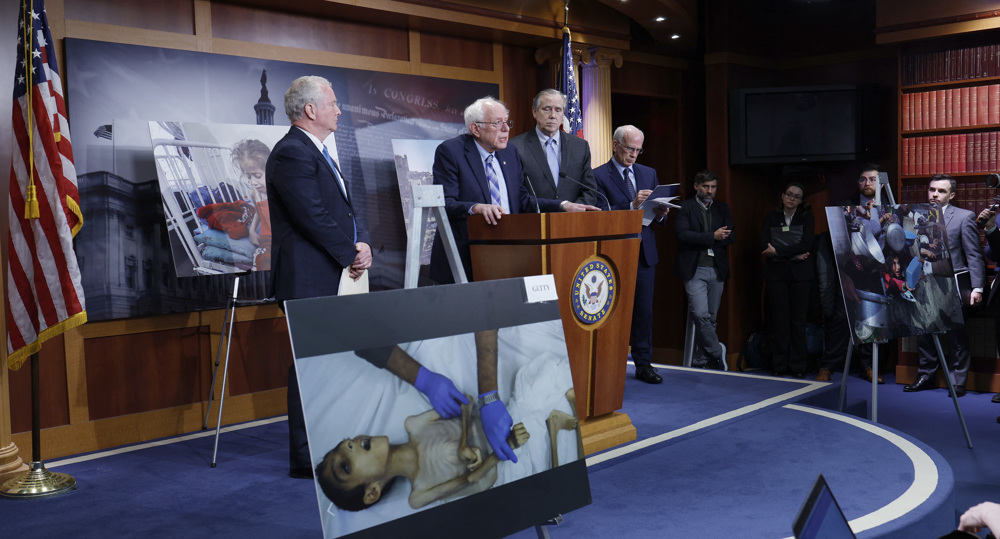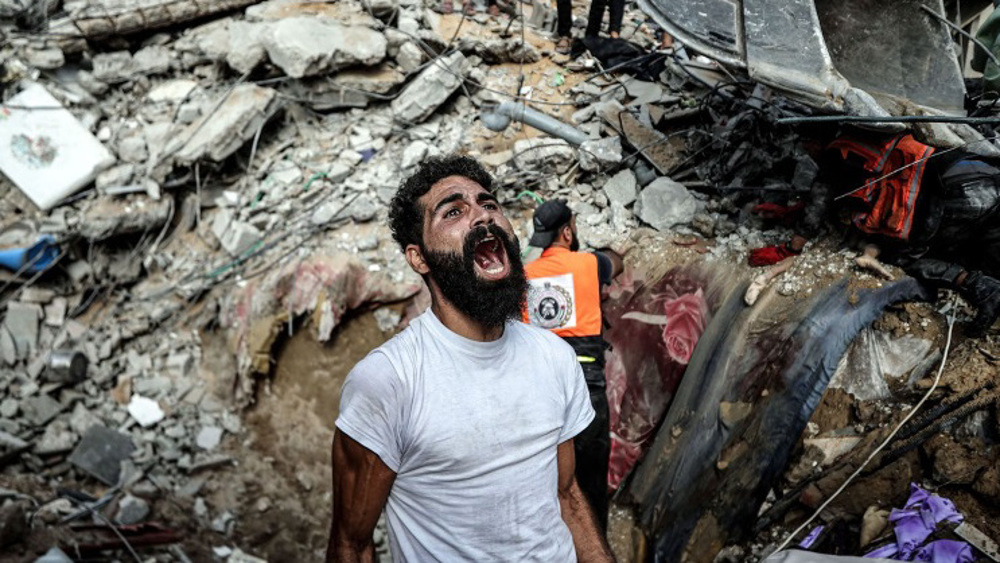Hezbollah to target Tel Aviv in response to Israeli attacks on Beirut: Sheikh Qassem
The leader of Hezbollah says the Lebanese resistance movement is prepared to fight a long war against Israel, and that their response to the recent deadly airstrikes on Beirut will be to target central Tel Aviv.
Sheikh Naim Qassem made the remarks in a televised address on Wednesday, referring to deadly Israeli strikes on three central Beirut districts in recent days, one of which martyred Hezbollah's media chief Mohammad Afif and four members of his team.
Sheikh Qassem stated that the regime martyred Afif while he was in a “civilian, media, and political location that is supposed to be protected in such cases."
"(Israel) attacked, assassinated, and assaulted the heart of the capital Beirut, so they must expect that the response will be in the center of Tel Aviv. We cannot leave the capital under the blows of the Israeli enemy unless it pays the price."
‘Hezbollah prepared for long war’
Sheikh Qassem referred to Hezbollah’s capabilities in handling crises, saying that after Sayyed Hassan Nasrallah’s assassination, it only took the group ten days to recover.
"The party faced a genuine crisis after the assassination of Secretary-General Sayyed Hassan Nasrallah, but within ten days, we recovered and began to heal our wounds."
He emphasized that the group is determined to continue defending Lebanon.
"Today we are resisting in Lebanon in defense of Lebanon and in defense of the Lebanese people from the Israeli occupation, which will only leave by resistance and will only be defeated by resistance. We will continue in this manner, God willing."
He stated that the movement had prepared for a long battle against the Zionist regime.
“They gave us a choice between submission and humiliation... and far from us is humiliation,” he said.
“The outcomes are determined by what happens on the ground. The resistance is capable of waging a long war.”
He praised the resistance’s steadfastness in the face of Israeli aggression, noting that the group’s retaliatory attacks have displaced hundreds of settlers from the northern occupied territories.
“We will remain on the battlefield and fight regardless of the cost. We will raise the cost for the enemy, respond to its aggression, and remain in a defensive stance.”
He explained that Hezbollah does not operate like regular armies and that its duty is not to prevent the enemy's advance but to resist wherever it advances.
“It is not important to say that the enemy entered this village or that village, but rather how many of them were killed today and where our fighters confronted them.”
The Hezbollah chief stated that despite the chaotic situation in Lebanon, the resistance group will continue supporting Palestinians in Gaza.
“We are honored to stand among the few supporting Gaza, alongside Iraq, Yemen, and Iran, while the rest of the world remains idle.”
‘Israel cannot impose conditions’
Regarding ceasefire talks, he said they will not stop fighting while awaiting the outcome of the negotiations.
“We are operating on two parallel tracks: the battlefield, which progresses in an escalating manner, and negotiations. We do not suspend the battlefield while awaiting negotiations.”
Sheikh Qassem said Israel cannot impose its conditions on Hezbollah and that the group would not accept any truce that violates Lebanese sovereignty.
"Israel cannot defeat us and cannot impose its conditions on us," he said.
“The occupation expected that it could gain through negotiations what it could not achieve on the battlefield, which is impossible.”
Sheikh Qassem stated that Hezbollah seeks a "complete and comprehensive end to aggression" and "the preservation of Lebanon's sovereignty... The Israeli enemy cannot enter (Lebanese territory) whenever it wants."
He said Hezbollah has reviewed and provided feedback on a US-drafted ceasefire proposal to end Israel's hostilities in Lebanon.
“We have received the paper and we have made some remarks.”
Sheikh Qassem noted that these comments—along with those from Lebanese parliament speaker Nabih Berri—have been communicated to the American envoy.
The Hezbollah chief indicated that a ceasefire depends on the “Israeli response.”
“Do we expect these negotiations to lead to a ceasefire and cessation of aggression quickly? No one can guarantee this because it is linked to Israel's response and [Benjamin] Netanyahu's seriousness.”
Sheikh Qassem’s speech came hours after US envoy Amos Hochstein concluded a two-day visit to Beirut seeking to broker a ceasefire deal.
Hochstein said he saw "a real opportunity" to end the fighting and mentioned he was heading to the Israeli-occupied territories "to try to bring this to a close if we can."
In Beirut, he met twice with Berri, a Hezbollah ally who has led mediation efforts on behalf of Lebanon.
The death toll from Israeli aggression against Lebanon since October 2023 has surpassed 3,500, with more than 15,000 others injured.
Press TV’s website can also be accessed at the following alternate addresses:








 This makes it easy to access the Press TV website
This makes it easy to access the Press TV website